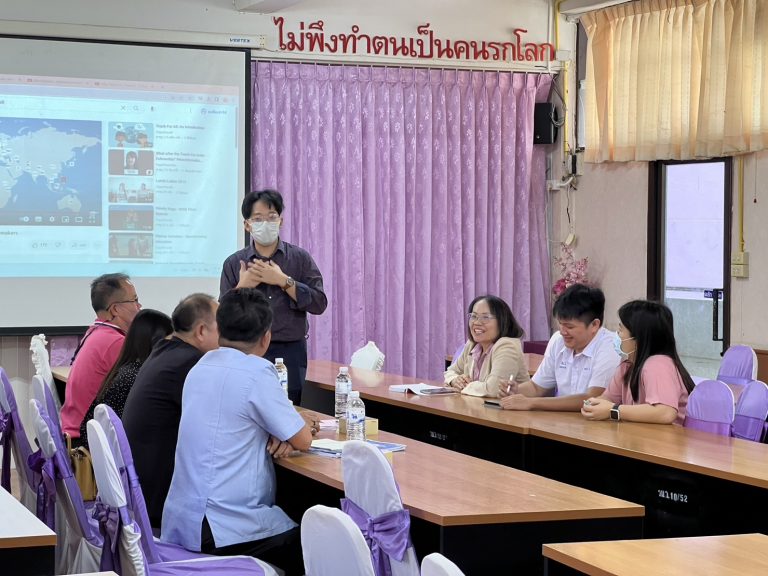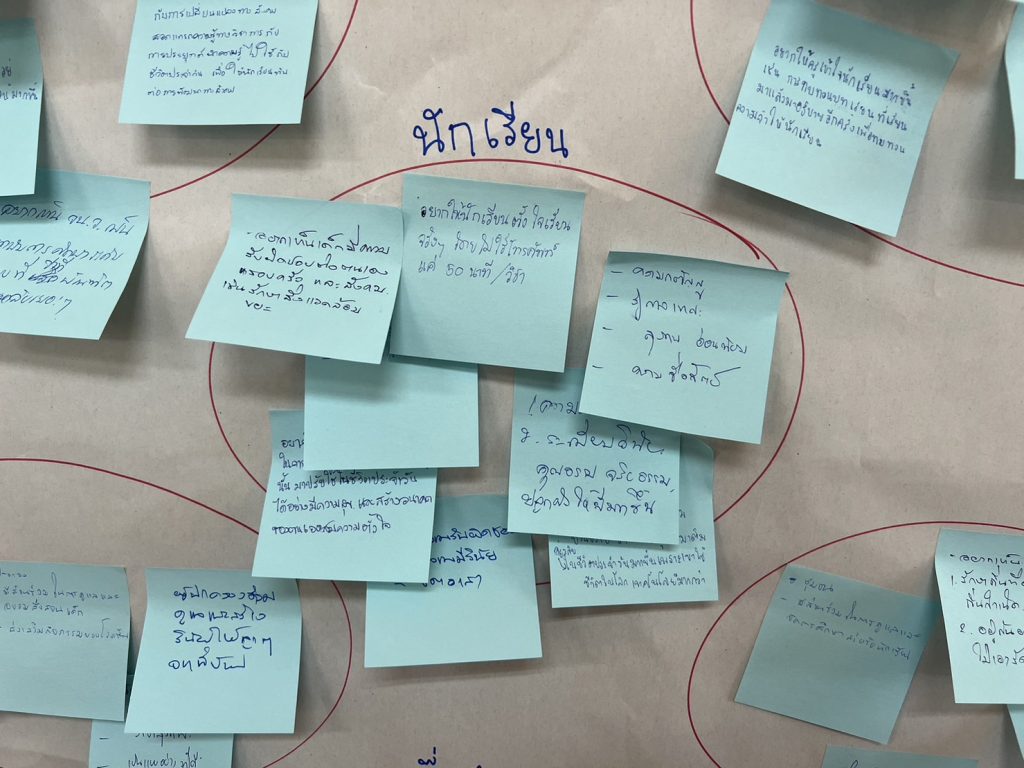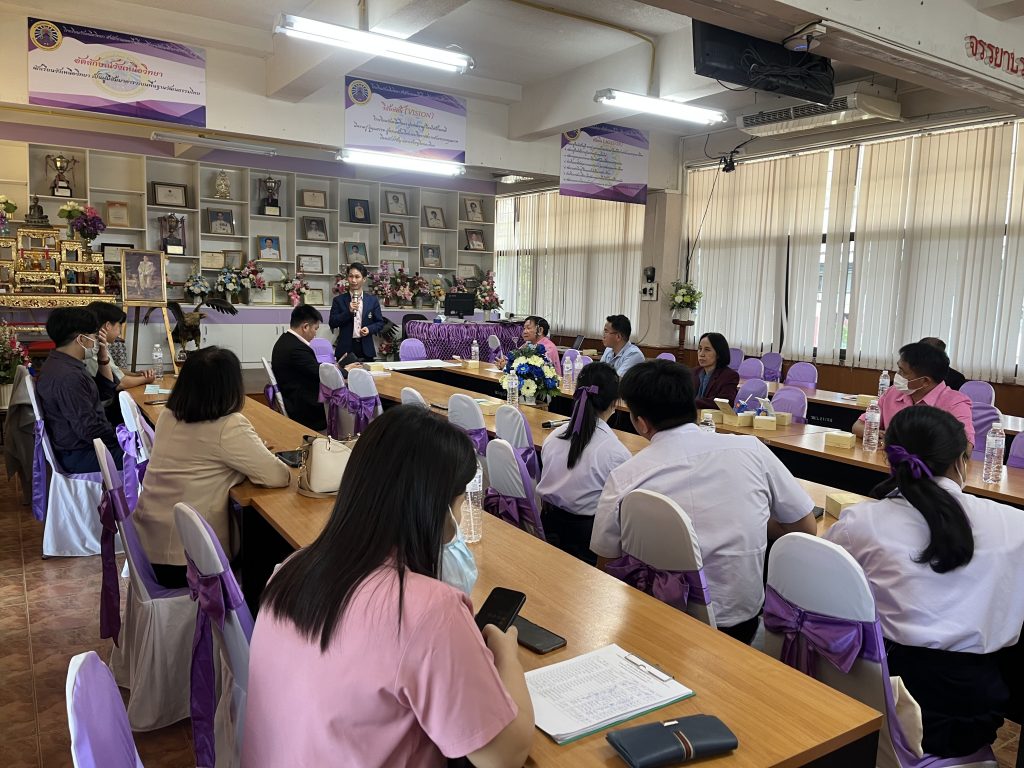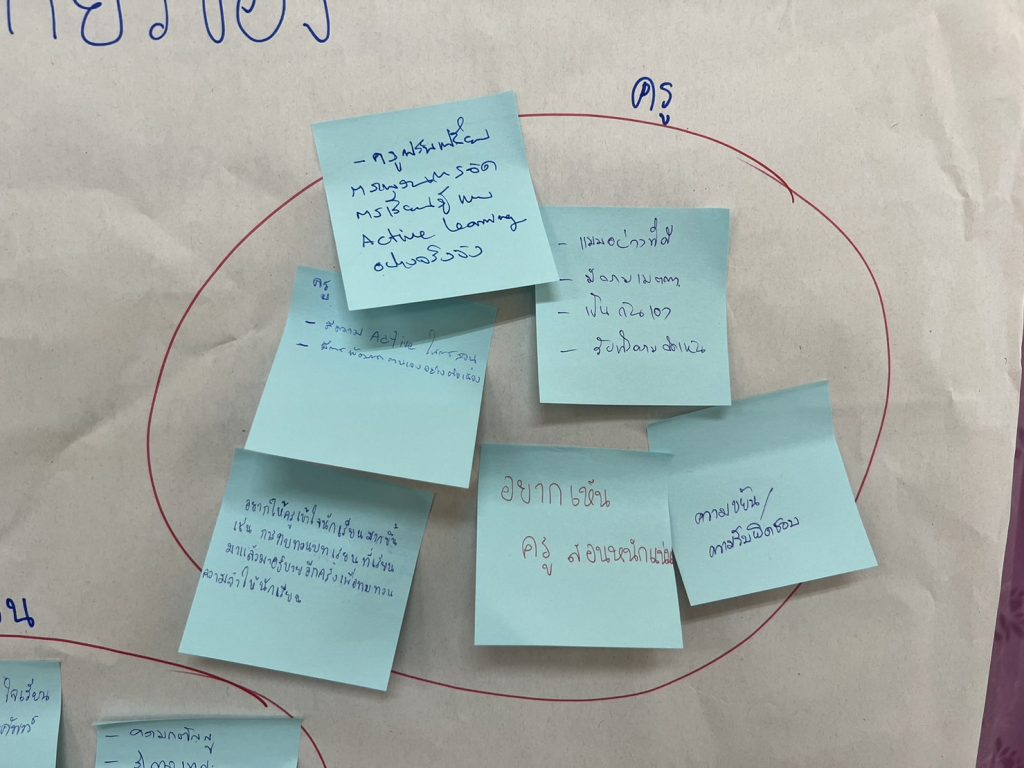Effective Listening and Systematic Development; The Path Towards Change
At Wang Nuea Wittaya School in Lampang, the Collective Vision Exercise posted a good opportunity for the school’s board of directors: the director, teachers, and management, could hear from students, parents, and stakeholders, and use the insights to drive school development. The activity was held on 21st March 2023, and facilitated by Teach For Thailand.

Tewin Yenjai, the school director, remarked that the school’s past attempt at creating a collective vision was from a top-down perspective and did not include enough stakeholders in the conversation.
“I’ve been a director for ten years, nothing ever came out of meetings done only amongst management,” said Mr. Yenjai. “They lacked the key factor, which was the inclusion of all parties, and were extremely idealistic and broad, like leveraging the school to international standards.”
“We wanted a practical vision from Teach For Thailand’s exercise.”
Mr. Yenjai has also made several observations from the brainstorming session.
“Participating students were enthusiastic, informative, and confident,” said the director. “I also noticed how teachers might have conflicting expectations, and sometimes they can come across as being extremely strict.”

“Students voiced their needs for teachers to listen, lessen the gap, and conduct classes that are easy to understand without giving too much homework.”
From these observations, Mr. Yenjai concluded Wang Nuea Wittaya School’s immediate goals: “We need to create a safe school, where students can learn happily.”
From this need, the school invited Teach For Thailand to organize a workshop for all teachers to know how to listen effectively and to create a safe space for students.

“I’m very happy to work with everyone to improve the school,” Wanpen Kid-Arn, a participant in both activities, remarked.
Mr. Yenjai envisioned the school’s next steps in three levels.
“The plan has three steps for this to work: one, the teacher’s role in teaching will need to adjust. Two, parents will be involved in student’s learning. Three, students need to be responsible for their own learning.”
During the collective vision exercise, the roles of each party were discussed.
“Parents play a big role for the children, we need to support, take care, and listen to their needs, and follow-up with their learning outcomes, why are they improving or not,” reflected Suthep Auad-Ket, parent representative.
“We should get closer with our kids, learn with them, so they can trust us.”
Lessening the gap between students and parents, teachers, as well as educators is a crucial step toward student’s effective learning and mental well-being. Such is what Friend, Chaiyawin Suttiboon, a Teach For Thailand (TFT) Fellow cohort 8, envisions.

“Teachers need to create safe space and attitude for students, that would allow them to open up.”
“Many teachers want students to approach them but don’t know how,” added Friend. “They first need to have a more positive attitude, and accept that they need to change their demeanor.”
Involving the director and teachers is an important part of Wang Nuea Wittaya School’s path toward change. From the Top-Down to Bottom-Up approach for development, all parties outside of management were heard and understood. Wang Nuea Wittaya School’s collective vision is to create a space where students, teachers, and management can all learn from each other, and the first step towards the development has already been achieved: effective listening, and the will to understand and act for the betterment of the school.

